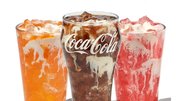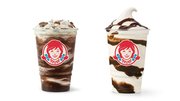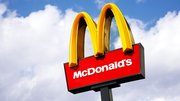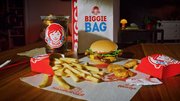News
CSPI finds many QSRs lacking in child-directed marketing policies
March 9, 2010
The nonprofit Center for Science in the Public Interest has released a report card rating 128 company policies with regard to food marketing aimed at children, including many quick-service restaurants. The research found that most food and entertainment companies have either weak policies or fail to have any policies whatsoever.
Dunkin' Brands received the highest grade of any QSR with a child-directed food-marketing policy, with a B-. Burger King earned a C, McDonald's USA a C- and Krispy Kreme Doughnuts Inc. a D+. Yum! Brands' KFC, Pizza Hut and Taco Bell as well as Subway received Ds. American Dairy Queen Corp. received an F for its policy, and a number of companies received an F for failing to have a policy: Chick-fil-A, Carl's Jr. and Hardee's, Jack in the Box, Popeyes, Sonic and Whataburger.
CSPI examined the companies' policies on advertising to children through traditional and digital media, as well as through in-store point-of-purchase materials, product placement and marketing to schools. The report found that many of the companies with grades below a B had child-directed marketing policies but were weak or failed in a number of areas, including failing to fully define child-directed marketing.
Some companies told CSPI they do not market food to children, but the agency found that many of them market to children through children's menu items and menus, fundraisers for schools, toy give-aways, movie tie-ins, children's sections on company Web sites, youth sports sponsorships and kids' clubs.
"Despite the industry's self-regulatory system, the vast majority of food and entertainment companies have no protections in place for children," CSPI nutrition policy director Margo G. Wootan, said in a news release. "If companies were marketing bananas and broccoli, we wouldn't be concerned. But instead, most of the marketing is for sugary cereals, fast food, snack foods, and candy. And this junk food marketing is a major contributor to childhood obesity."
In 2006, the Council of Better Business Bureaus announced a self-regulatory program called the Childrens Food and Beverage Advertising Initiative. Sixteen major food and restaurant companies, including Burger King and McDonald's, have joined the program. These participants represent about 80 percent of television food advertising expenditures and announced that they will not market foods to children under 12 that don't meet companies' individual nutritional standards. But those standards often are carefully tailored and still allow a considerable volume of junk-food advertising to reach young kids, according to CSPI and a study by Children Now.
According to the Institute of Medicine, TV commercials affect children's food choices, food purchase requests, diets, and health, and the mere act of watching commercial television is linked to obesity.
In the next few weeks, the Federal Trade Commission together with other federal agencies is expected to propose a set of nutrition criteria and other standards for foods marketed to children that, when finalized in July, the agency hopes companies will adopt on a voluntary basis.
 ChatGPT
ChatGPT Grok
Grok Perplexity
Perplexity Claude
Claude








